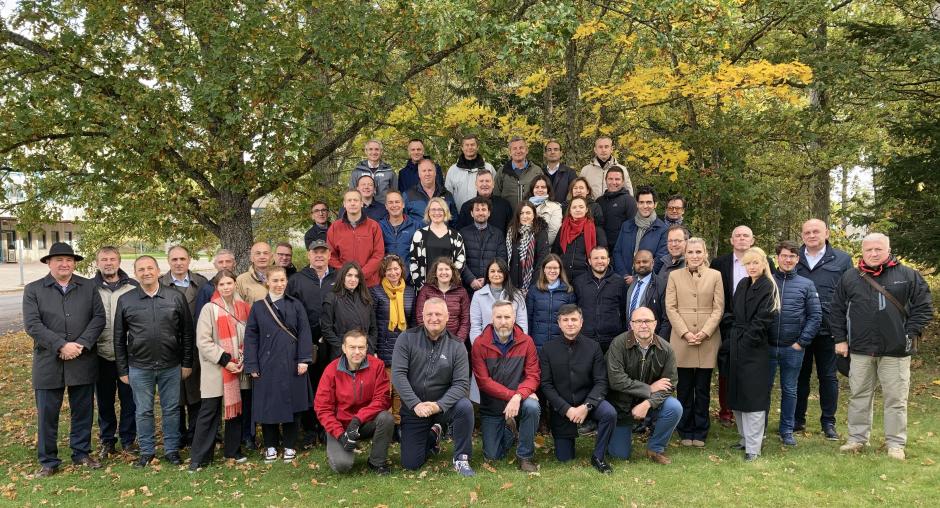Continued Importance of Code of Conduct on Politico-Military Aspects of Security highlighted at OSCE visit hosted by Sweden

A visit in the framework of the OSCE Code of Conduct on Politico-Military Aspects of Security, with a focus on women in armed forces, highlighting the example of Sweden, was organized by the OSCE Conflict Prevention Centre and the Chairperson-in-Office from 30 September to 1 October 2021.
The Chairperson-in-Office, Swedish Minister of Foreign Affairs Ann Linde, joined the event by attending a decision-making exercise and delivered remarks, during which she highlighted how Sweden is inspired by the Code of Conduct on the political and operational level, as well as in the field. She also underlined OSCE’s vital role for security and stability, emphasizing that it is high time to step up efforts to ensure security for all and by all, through participation of women, on both the civilian and military side.
The event focused on actions taken within the Swedish Armed Forces and other agencies to safeguard the full and equal participation of women in uniform, in order to contribute to ensuring their human rights and freedom as part of the Armed Forces. By exploring and discussing specific perspectives, challenges and solutions, and exchanging good practices, the knowledge and understanding of participants on this important topic was deepened.
The visit was opened by Per Bolinder, Director, Deputy Head of the Department for Military Capabilities and Operations, who highlighted that gender equality within armed forces contributes to their legitimacy and credibility in societies and that the Swedish Ministry of Defence aims to significantly increase women’s participation on all levels. Vice-Admiral Jonas Haggren stated that the Swedish Armed Forces endeavours to remove obstacles for women by conducting thorough analysis, providing appropriate guidance to members of the Armed Forces and implementing active measures.
During the first day of the visit, the Swedish Ministry of Defence presented political considerations and directives on women in the armed forces, after which the Swedish Defence Conscription and Assessment Agency presented its approach to gender neutral conscription. The Swedish Armed Forces presented research on personal military equipment, focusing on its requirements, adjustments and consequences.
On the second day, a visit to the Life Guards Regiment with live displays and discussions with Swedish conscripts was followed by a visit to the Nordic Centre for Gender in Military Operations (NCGM) and was concluded with the high level visit of the Chairperson-in-Office, Swedish Minister of Foreign Affairs Ann Linde.
The discussion brought together more than 50 participants from 35 OSCE participating States. They comprised senior military officers, senior government officials, and representatives of the OSCE Secretariat and the Office for Democratic Institutions and Human Rights.
The event was generously supported through donations provided by Austria, Germany, Switzerland, and the Czech Republic.
